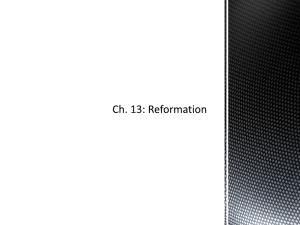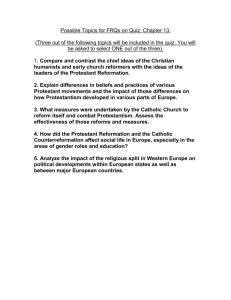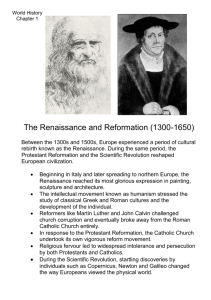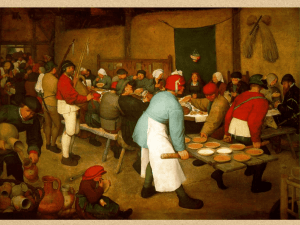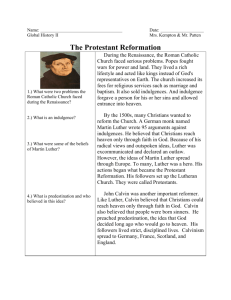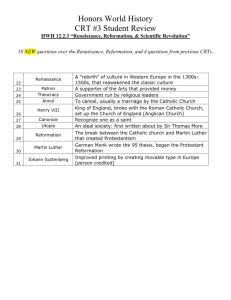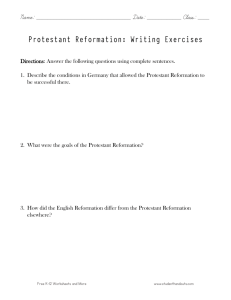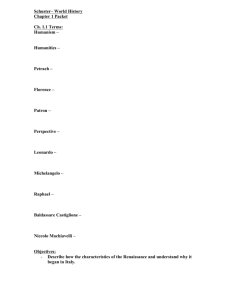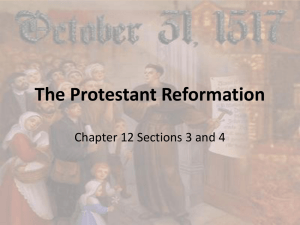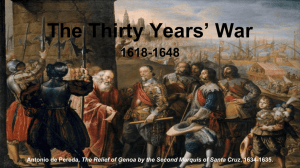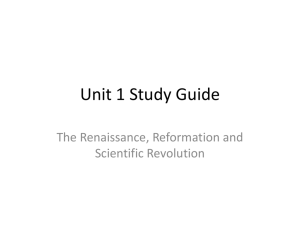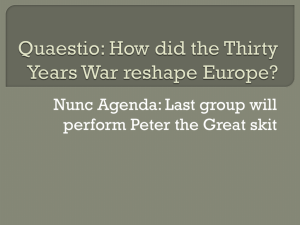Protestant Reformation Definitions
advertisement
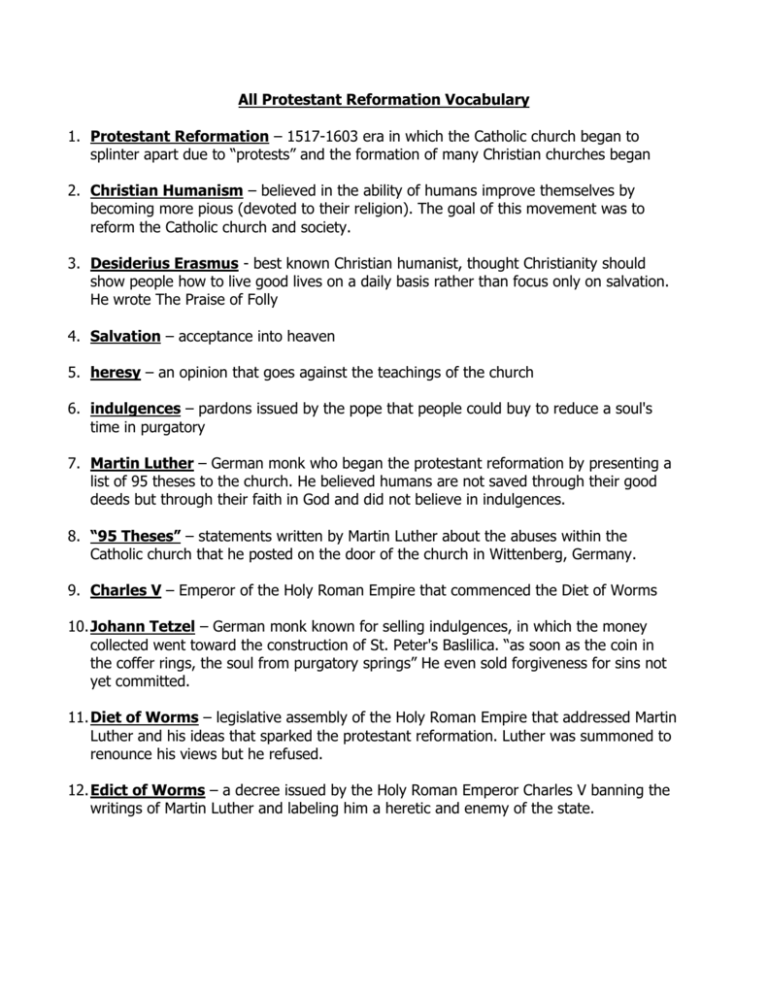
All Protestant Reformation Vocabulary 1. Protestant Reformation – 1517-1603 era in which the Catholic church began to splinter apart due to “protests” and the formation of many Christian churches began 2. Christian Humanism – believed in the ability of humans improve themselves by becoming more pious (devoted to their religion). The goal of this movement was to reform the Catholic church and society. 3. Desiderius Erasmus - best known Christian humanist, thought Christianity should show people how to live good lives on a daily basis rather than focus only on salvation. He wrote The Praise of Folly 4. Salvation – acceptance into heaven 5. heresy – an opinion that goes against the teachings of the church 6. indulgences – pardons issued by the pope that people could buy to reduce a soul's time in purgatory 7. Martin Luther – German monk who began the protestant reformation by presenting a list of 95 theses to the church. He believed humans are not saved through their good deeds but through their faith in God and did not believe in indulgences. 8. “95 Theses” – statements written by Martin Luther about the abuses within the Catholic church that he posted on the door of the church in Wittenberg, Germany. 9. Charles V – Emperor of the Holy Roman Empire that commenced the Diet of Worms 10. Johann Tetzel – German monk known for selling indulgences, in which the money collected went toward the construction of St. Peter's Baslilica. “as soon as the coin in the coffer rings, the soul from purgatory springs” He even sold forgiveness for sins not yet committed. 11. Diet of Worms – legislative assembly of the Holy Roman Empire that addressed Martin Luther and his ideas that sparked the protestant reformation. Luther was summoned to renounce his views but he refused. 12. Edict of Worms – a decree issued by the Holy Roman Emperor Charles V banning the writings of Martin Luther and labeling him a heretic and enemy of the state. All Protestant Reformation Vocabulary 13. Peace of Augsburg – agreement in 1555 that ended religious warfare in Germany and formally accepted the division of Christianity in Germany. German states could choose between Catholicism or Lutheranism but it was up to the ruler not the individual. 14. The Praise of Folly – an essay written by Erasmus in 1509 where he criticized aspects of society that were in most need of reform. 15. Predestination – the idea (theory by Calvin) that God determines whether our souls are saved or condemned before we are born 16. Ulrich Zwingli – leader of the reformation in Switzerland. His beliefs were simple: the Bible is truth and anything not in the Bible is not truth. The simplicity of this message gained him great public support. 17. John Calvin – fled Catholic France for Switzerland after he converted to Protestantism. He placed a new emphasis on the “power, grace and glory of God” which led him to the idea of predestination 18. Henry VIII -(1491-1547) King of England from 1509-1547; his desire to annul his marriage led to a conflict with the pope, England's break with the Roman Catholic Church and it's embrace of Protestantism. He established the church of England in 1532 19. Annul – to declare a marriage invalid based on the laws of the church 20. Ignatius of Loyola – A Spanish nobleman who founded the Society of Jesus, also known as Jesuits. 21. Anabaptists – Protestant sect that believed only adults could make the free choice regarding religion. They also advocated the separation of church and state, any member of the church was able to be a minister and rejected infant/child baptism. 22. Council of Trent – meetings of Catholic leaders who met off and on for 18 years. The final decrees reaffirmed traditional Catholic teachings and opposed Protestant beliefs. Faith and good works were declared necessary for salvation, belief in purgatory and the use of indulgences were strengthened although selling them was forbidden.
